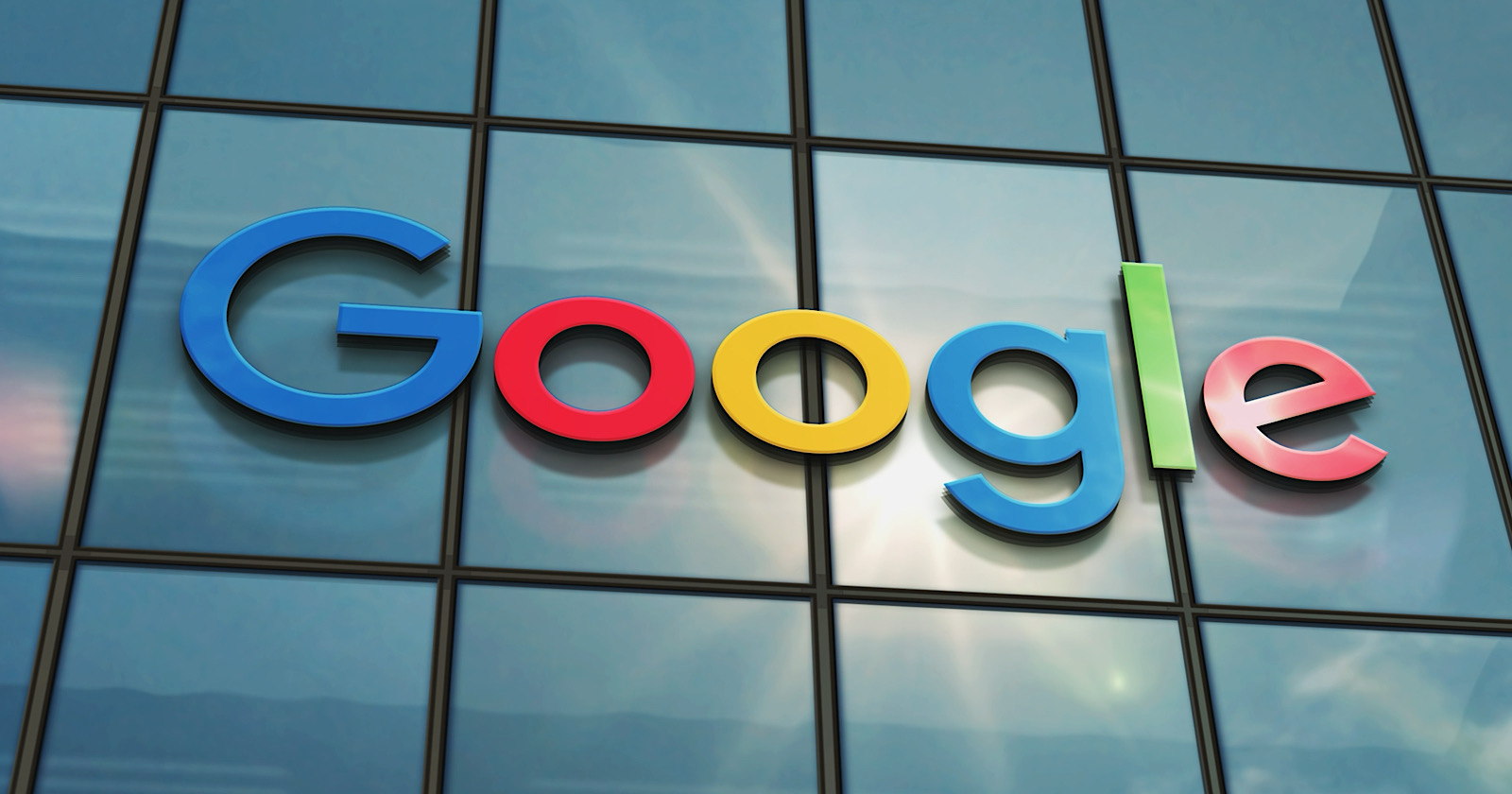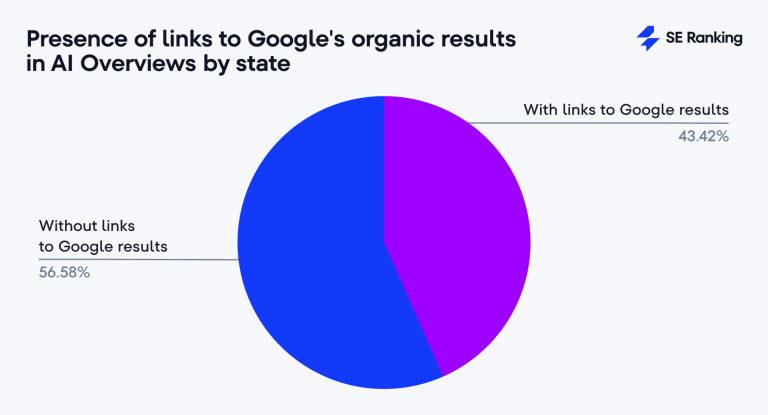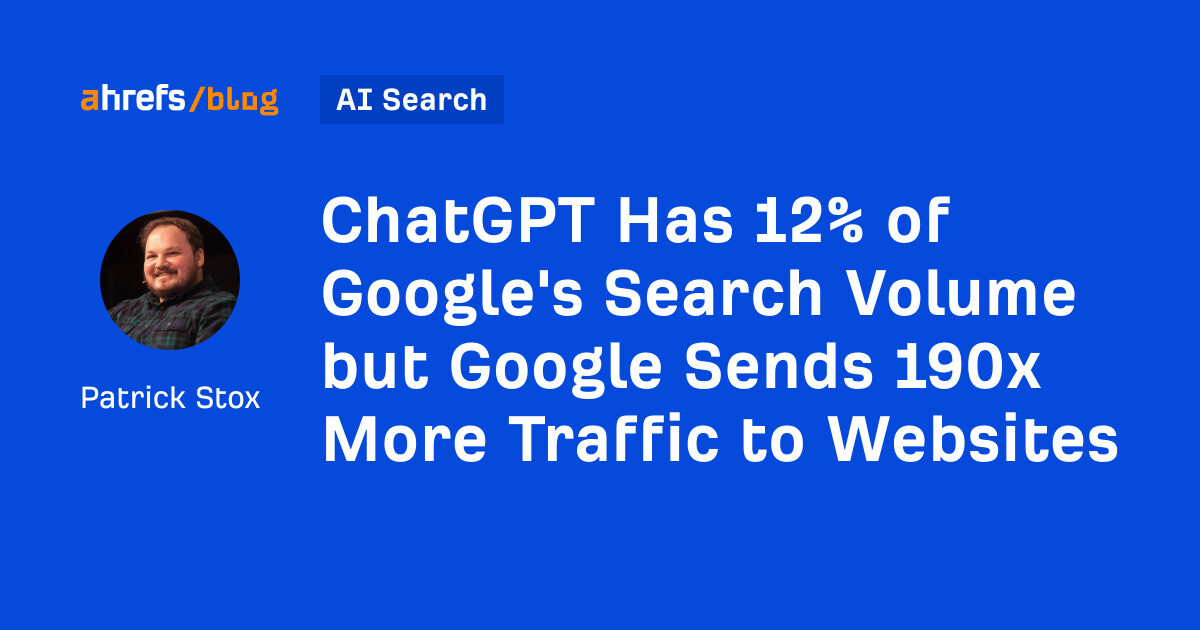Google Links To Itself: 43% Of AI Overviews Point Back To Google via @sejournal, @MattGSouthern
Google's AI Overviews link back to Google 43% of the time, furthering its walled garden effect, according to new data. The post Google Links To Itself: 43% Of AI Overviews Point Back To Google appeared first on Search Engine...

Google's AI Overviews link back to Google 43% of the time, furthering its walled garden effect, according to new data.
43% of AI Overviews link back to Google's search results. Longer search queries and low-volume keywords trigger AIOs more often. About 30% of queries trigger AIOs.
New research shows that Google’s AI Overviews often link to Google, contributing to the walled garden effect that encourages users to stay longer on Google’s site.
A study by SE Ranking examined Google’s AI Overviews in five U.S. states. It found that 43% of these AI answers contain links redirecting users to Google’s search results. Each answer typically includes 4-6 links to Google.
This aligns with recent data indicating that Google users make 10 clicks before visiting other websites. These patterns suggest that Google is working to keep users within its ecosystem for longer periods.
Google Citing Itself in AI Answers
The SE Ranking study analyzed 100,013 keywords across five states: Colorado, Texas, California, New York, and Washington, D.C.
It tracked how Google’s AI summaries function in different regions. Although locations showed slight variance, the study found that Google.com is the most-cited website in AI Overviews.
Google appears in about 44% of all AI answers, significantly ahead of the next most-cited sources, YouTube, Reddit, Quora, and Wikipedia, appearing in about 13%.
The research states:
“Based on the data combined from all five states (141,507 total AI Overview appearances), our data analysis shows that 43.42% (61,437 times) of AI Overview responses contain links to Google organic results, while 56.58% of responses do not.”
 Image Credit: SE Ranking
Image Credit: SE Ranking
Building on the Walled Garden Trend
These findings complement a recent analysis from Momentic, which found that Google’s “pages per visit” has reached 10, indicating users spend significantly more clicks on Google before visiting other sites.
Overall, this research reveals Google is creating a more self-contained search experience:
AI Overviews appear in approximately 30% of all searches Nearly half of these AI answers link back to Google itself Users now make 10 clicks within Google before leaving Longer, more specific queries trigger AI Overviews more frequentlyGoogle still drives substantial traffic outward; 175.5 million visits in March, according to Momentic.
However, it’s less effective at sending users away than ChatGPT. Google produces just 0.6 external visits per user, while ChatGPT generates 1.4 visits per user.
More Key Stats from the Study
The SE Ranking research uncovered several additional findings:
AI Overviews almost always appear alongside other SERP features (99.25% of the time), most commonly with People Also Ask boxes (98.5%) The typical AI Overview consists of about 1,766 characters (roughly 254 words) and cites an average of 13.3 sources Medium-difficult keywords (21-40 on the difficulty scale) most frequently trigger AI Overviews (33.4%), whereas highly competitive terms (81-100) rarely generate them (just 3.7%) Keywords with CPC values between $2-$5 produce the highest rate of AI Overviews (32%), while expensive keywords ($10+) yield them the least (17.3%) Fashion and Beauty has the lowest AI Overview appearance rate (just 1.4%), followed by E-Commerce (2.1%) and News/Politics (3.8%) The longer an AI Overview’s answer, the more sources it cites. Responses under 600 characters cite about five sources, while those over 6,600 characters cite around 28 sources.These statistics further emphasize how Google’s AI Overviews are reshaping search behavior.
This data stresses the need to optimize for multiple traffic sources while remaining visible within Google’s results pages.
SEJ STAFF Matt G. Southern Senior News Writer at Search Engine Journal
Matt G. Southern, Senior News Writer, has been with Search Engine Journal since 2013. With a bachelor’s degree in communications, ...

 Troov
Troov 
































